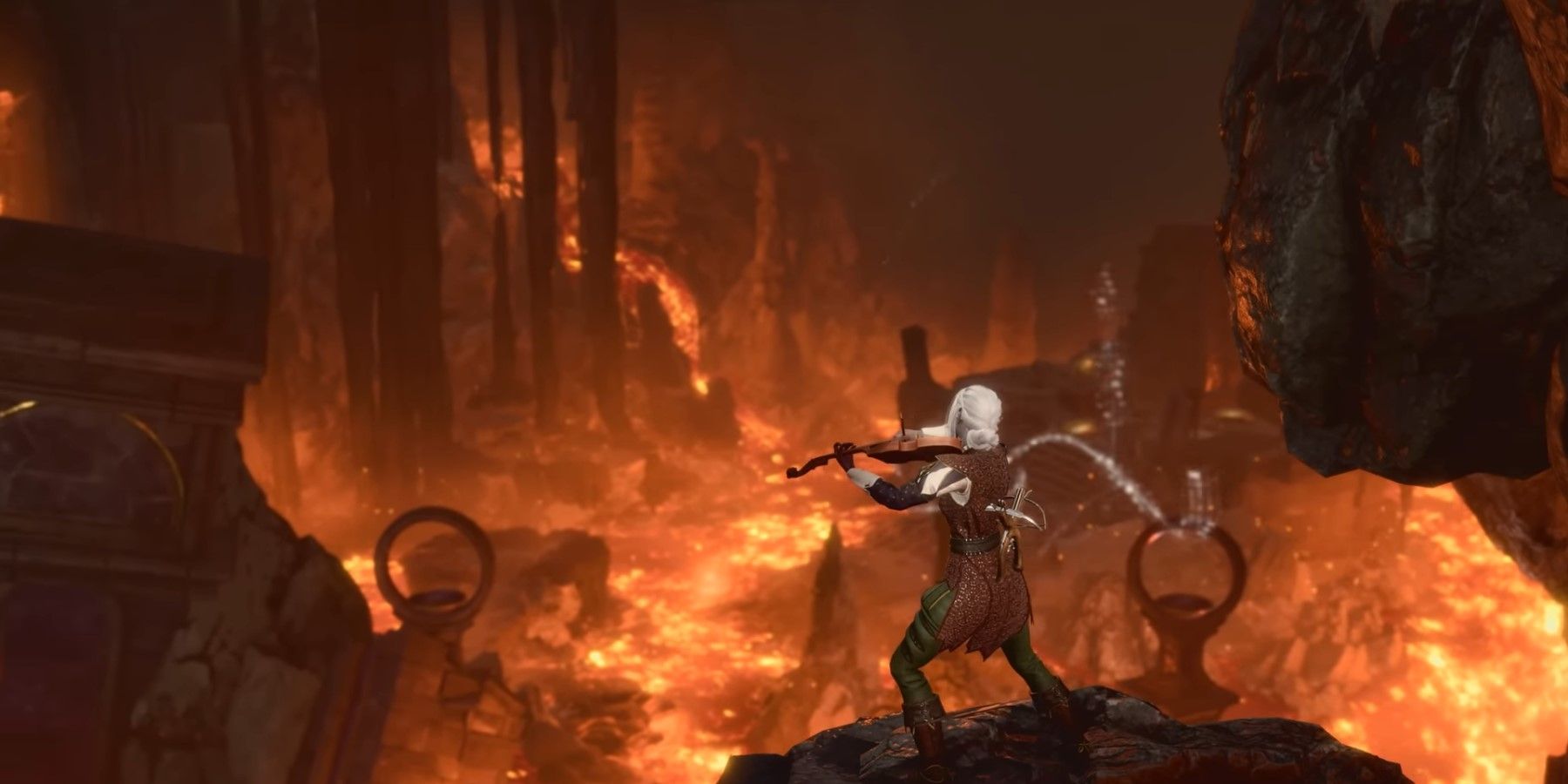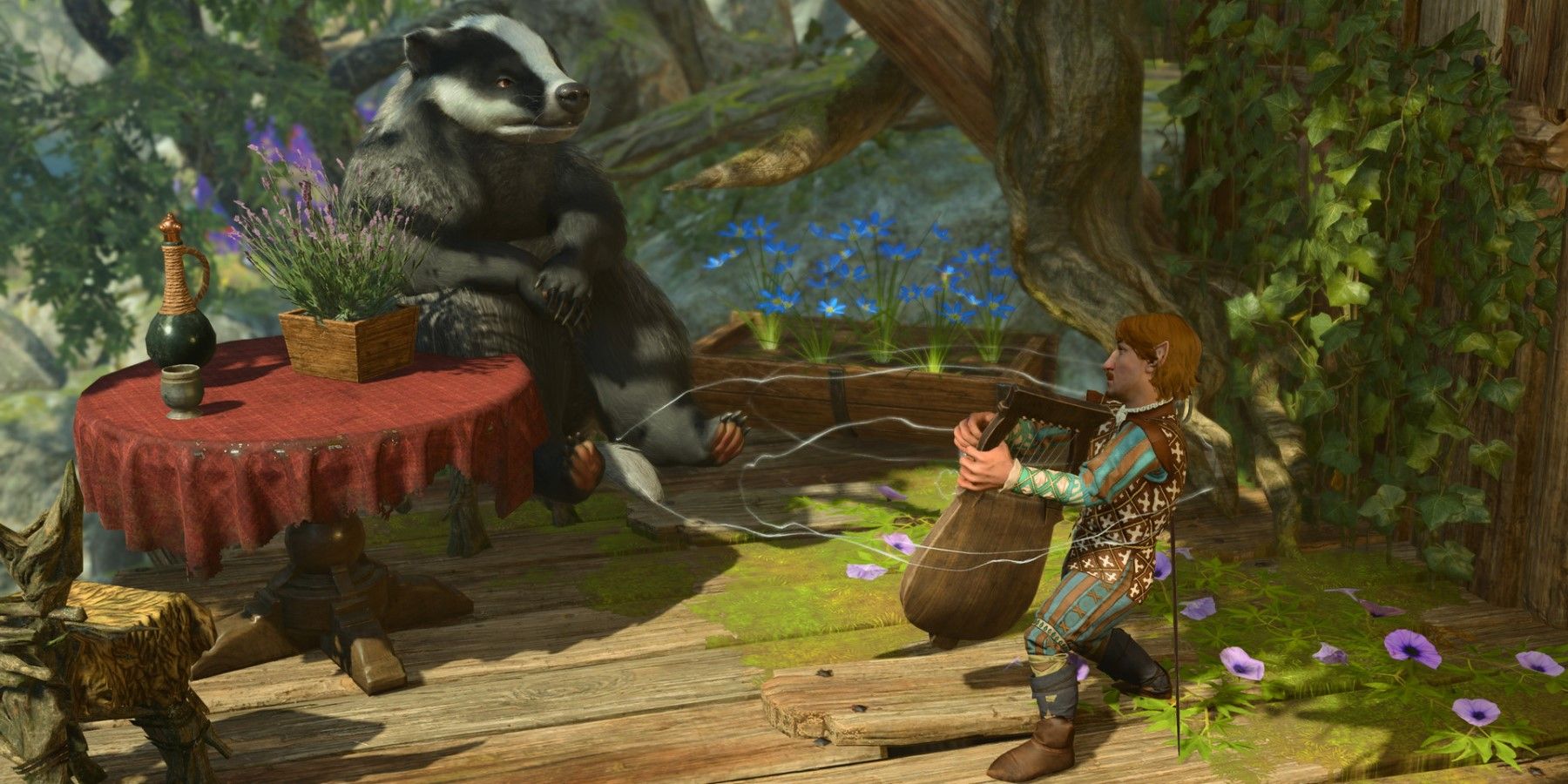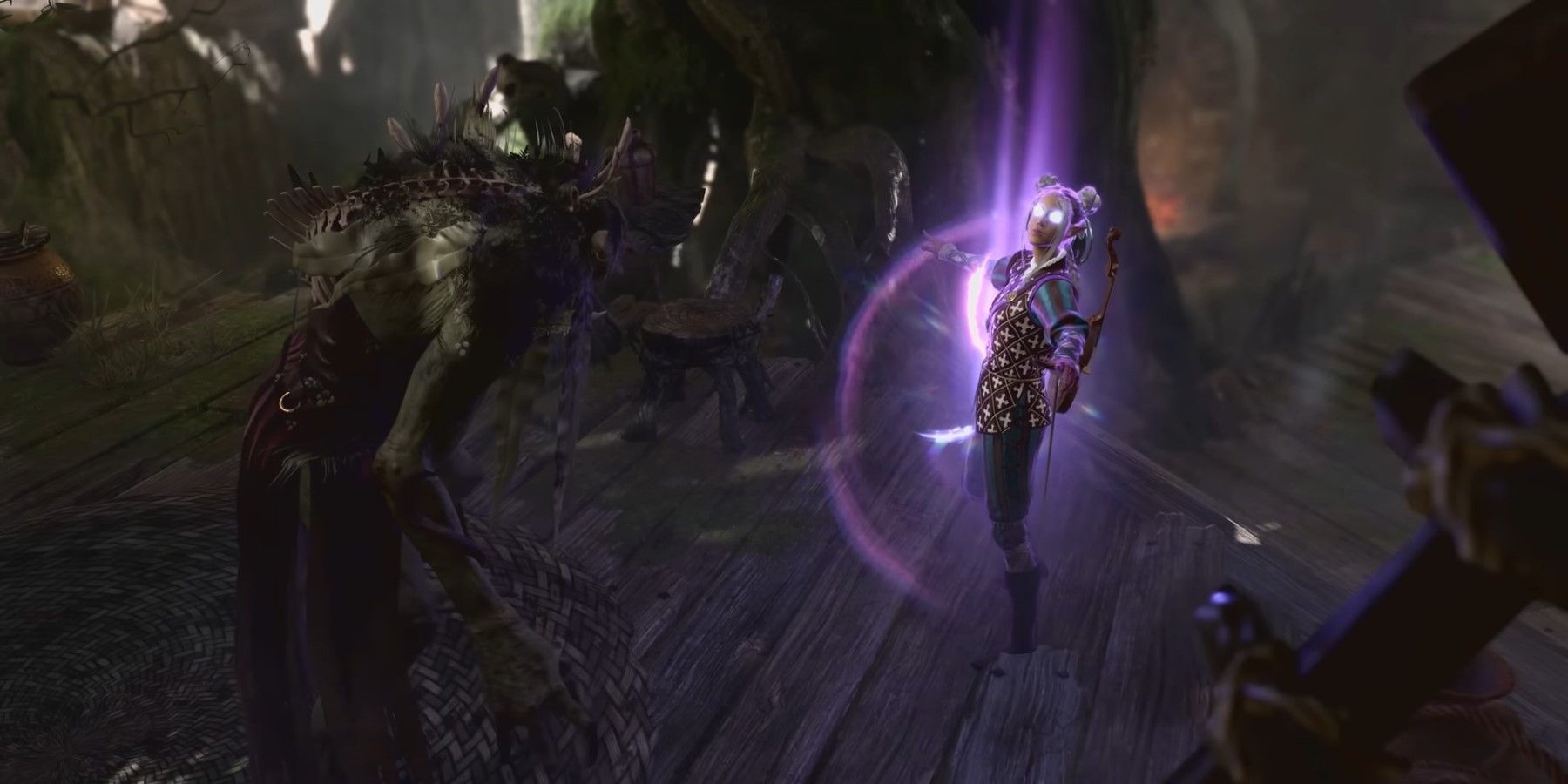Baldur's Gate 3 is shaping up to be one of the biggest RPGs of the decade, and that expansive scope begins at character creation, where players must choose race, class, and background from over a hundred combined options. Of these choices, the most impactful will almost certainly be the Baldur's Gate 3 class, as it defines not only what the player's character can do but also who they are as a person.
Players who are looking for a charming, magical, jack-of-all-trades entertainer should look no further than the Bard class. The Bard is a quintessential Dungeons and Dragons class, one who has unlocked the ancient magic hidden within music, song, and performance. With Baldur's Gate 3's adoption of the +2/+1 Ability Score options from Tasha's Cauldron of Everything, any race can make a good Bard by choosing Charisma as their primary Ability Score, with Dexterity being the recommended secondary.
Baldur's Gate 3: Bard Roleplay Features
There are few classes more flavorful than the Bard in Baldur's Gate 3, and that flavor begins at character creation with the choice of a starting instrument. Although the differences between these instruments are mostly cosmetic, and other instruments can be acquired later in the game, a Bard's instrument helps to define their character. They will use their equipped instrument whenever they cast a Bard spell, adding a musical motif as they work their magic. Bards can also play their instruments outside of combat, causing nearby NPCs to gather round and even toss a few coins, allowing the Bard's allies to take advantage of their distraction to pick pockets, open locks, and generally get up to no good.
When it comes to dialogue options, Bards make the most of their natural charisma, encyclopedic knowledge of song and story, and performance skills. Like their fellow Charisma class the Warlock, the Bard will most often serve as the party's "face", taking the lead in conversations and using their high Persuasion, Deception, and even Intimidation to charm, trick, or coerce others into accepting their point of view.
Baldur's Gate 3: Bard Gameplay Features
In gameplay terms, the Bard fills the role of a support caster, though with a focus on crowd control and debuffing rather than healing. The Bard gets access to the same number of Spell Slots per Long Rest as any other full caster in the game, and chooses the spells they know from a long list of buffing, debuffing, healing, and utility options. The Bard supplements their spells with a few unique support and Skill-focused features, further boosting their legendary versatility.
These features include Bardic Inspiration, which allows the Bard to grant their allies a bonus die to Attack Rolls, Saving Throws, or Ability Checks, and Song of Rest, which grants the entire party an extra Short Rest per Long Rest. The Bard also gains a pair of Skill-based features in Jack of all Trades, which makes the Bard better at Skills they aren't Proficient in, and Expertise, which allows the Bard to pick two Skills to further specialize in. The Level 6+ features of the Bard in Baldur's Gate 3 aren't yet confirmed, but if the class continues to follow the DnD 5E rules closely they will also gain the ability to protect allies from the Frightened and Charmed conditions, and eventually gain the ability to pick spells from any class' spell list.
While Bards pick new spells at every level, the most important choice they'll make past character creation is picking their subclass. The Bard has three subclasses to choose from, each with its own focus and flavor:
- College of Lore
- The Skill-focused College of Lore grants additional Skill Proficiencies, unlocks the ability to use Bardic Inspiration to debuff enemies, and grants early access to spells from other class' spell lists.
- College of Valor
- The leadership-focused College of Valor grants Medium Armor, Shield, and Martial Weapons proficiencies, as well as an upgraded version of Bardic Inspiration that allows allies to use the Inspiration to add to their damage or AC. It also grants access to the Extra Attack feature at Level 6.
- College of Swords
- The fighting-focused College of Swords grants Medium Armor and Scimitar Proficiency, as well as a Fighting Style and the ability for the Bard to use Bardic Inspiration on themselves to perform powerful Blade Flourish effects in combat. It also grants access to the Extra Attack feature at Level 6.
Players can expect their subclass to provide plenty of roleplay opportunities and dialogue options as they progress through Baldur's Gate 3's story, allowing them to add an extra level of customization to the Bard's charm, versatility, and musical talents.
Baldur's Gate 3 comes out on August 3 on PC and September 6 on PS5.



